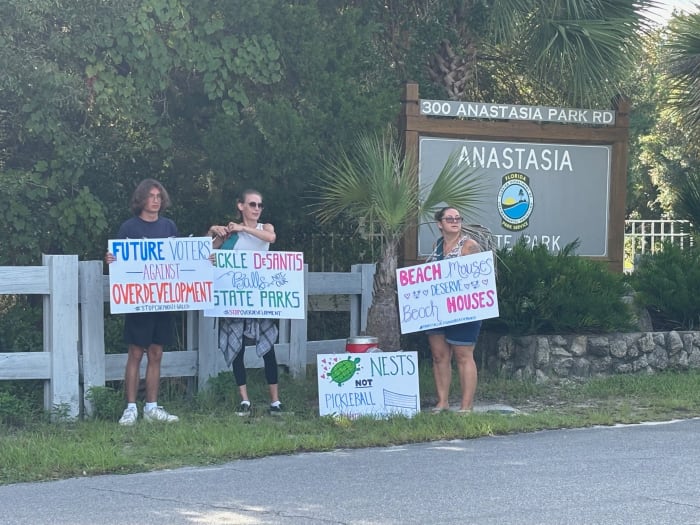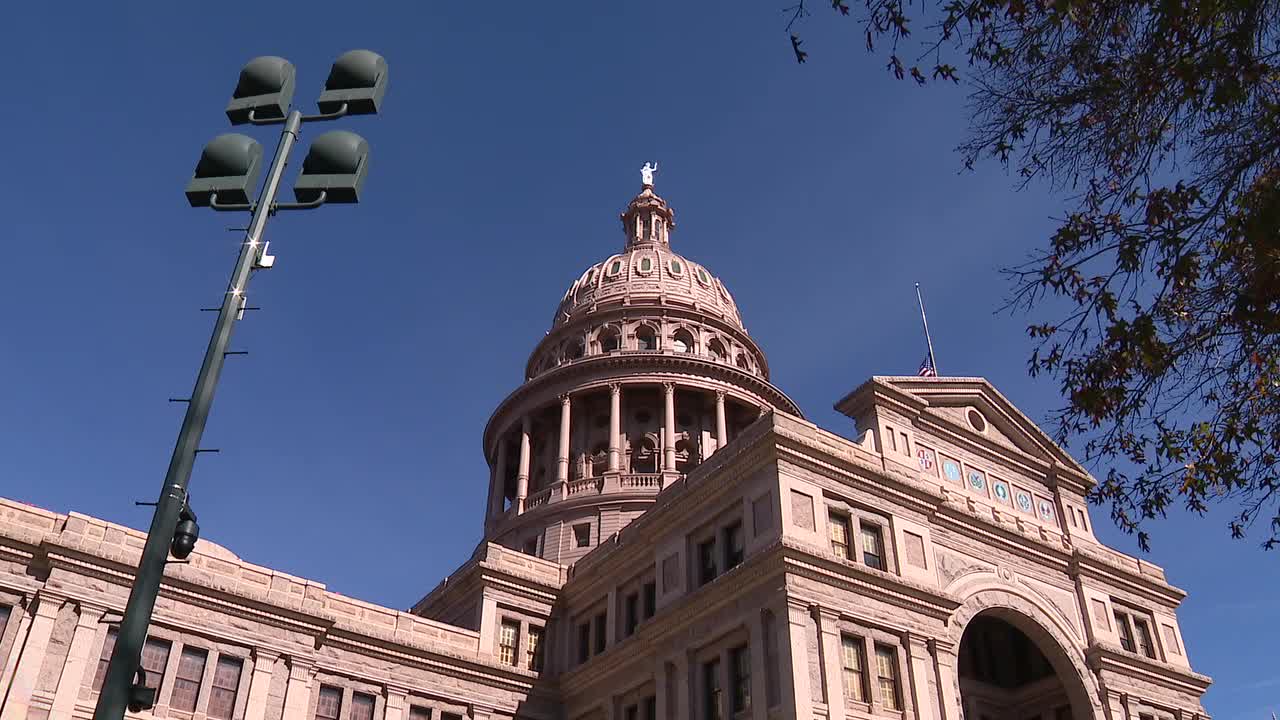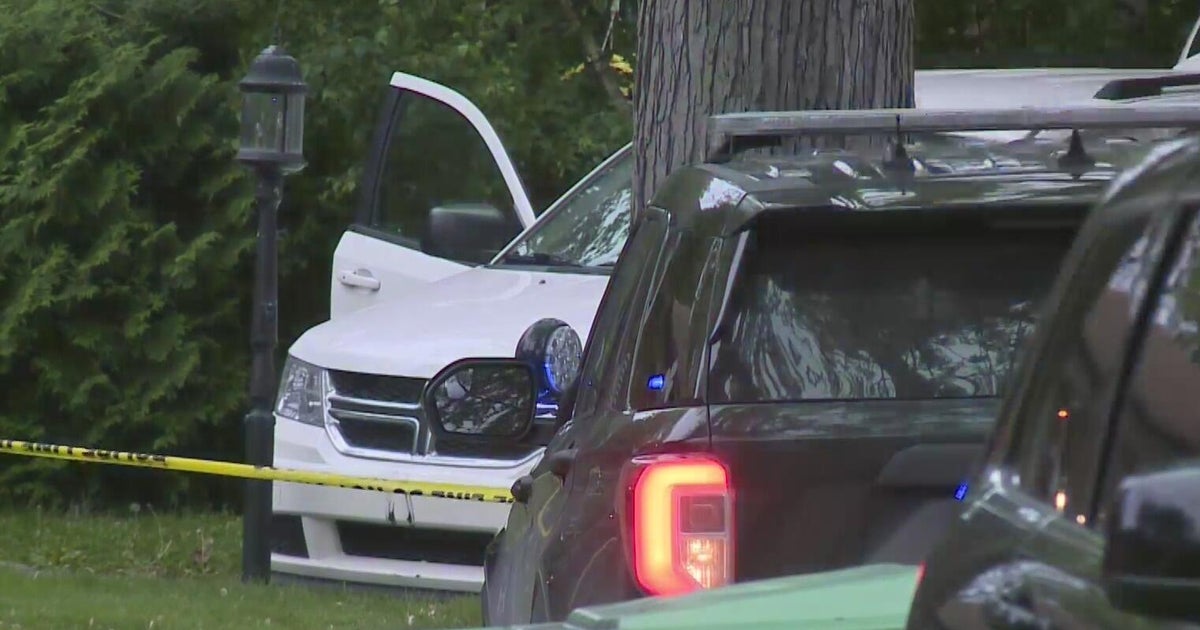North Dakota
Port: Is it too much to ask that Doug Burgum do his job as governor?

MINOT — The most frustrating line from
the Bismarck Tribune report
about a group of North Dakota filmmakers upset about the troubling process around $700,000 in grants doled out by the state Commerce Department was this one: “[Gov. Doug] Burgum’s office previously declined comment to the Tribune.”
The filmmakers have been asking for answers from Burgum’s office since August, but neither the governor, nor anybody from his staff, could be bothered to oblige them?
Tom Stromme / The Bismarck Tribune
As I reported back in August,
at issue are two grants given to Canticle Productions, a Bismarck-based filmmaker. One totaling $100,000 was issued to the company in 2021 but was apparently not advertised to other filmmakers. The other, for $600,000, was given to Canticle through a process that was seemingly designed to keep other filmmakers from applying.
On Friday, July 21, at almost 4:00 pm, the Commerce Department announced it
was taking applications for the grant money.
The due date for the applications was July 31, just 10 calendar days, or six business days, later.
If it seems like perhaps this competitive application process wasn’t intended to be all that competitive, you may be right. When the appropriation for the grant was discussed in the Legislature, it seemed lawmakers already knew where it was heading.
“There’s an added funding for a Motion Picture Production and Recruitment Grant to a production company for another motion picture that’s being made in North Dakota,” Sen. Brad Bekkedahl, a Republican from Williston, said earlier this year in his floor speech for
House Bill 1018,
the Commerce Department budget, which included the grant appropriation. “Many of the predictions…productions from this company have been North Dakota centrist productions, and this is another one they are bringing online.”
Why even bother with a competitive grant process if the money was always intended to go to Canticle?
One explanation may lay in
Article X, Section 18
of the North Dakota constitution, which states, “neither the state nor any political subdivision thereof shall otherwise loan or give its credit or make donations to or in aid of any individual, association or corporation except for reasonable support of the poor, nor subscribe to or become the owner of capital stock in any association or corporation.”
This, colloquially, is called the “gift clause,” a prohibition on the state making a direct appropriation to any specific person or company. Perhaps,exempli gratia, a $600,000 grant to a specific film production company.
A legislative appropriation to a competitive grant program for filmmakers passes constitutional muster. A legislative appropriation directly to a company would not.
It sure seems like the Commerce Department did an end-run around the state constitution to funnel money to a specific film company.
Other filmmakers are blowing the whistle on it, and they’re right to. It’s not a good situation. I have nothing bad to say about Canticle Productions. The films they’ve produced about North Dakota — I particularly enjoyed
“End of the Rope”
— are very good. It’s understandable why state officials would be enthusiastic about helping Canticle make more of those films.
But that’s not justification for putting a figurative finger on the scale of what was supposed to be an open, competitive process. Canticle Productions is not the problem. The process is.
Which brings us back to
Gov. Doug Burgum.
Why is he AWOL? Why can’t these filmmakers, who have a legitimate complaint to lodge, get the time of day from him? Or, at least, a member of his staff?
One answer is that Burgum is too busy with
his quixotic tilt at the White House
to attend to the picayune responsibilities of governing the State of North Dakota, even though that’s the duty of the office he currently holds.
The filmmakers are
now calling on Attorney General Drew Wrigley and Auditor Josh Gallion to get involved,
but they first went to Burgum in August.
They should have. The commerce commissioner, currently Josh Teigen, is a member of Burgum’s cabinet. The Commerce Department is a part of the executive branch he presides over. Burgum, or at least someone on his staff, owes these filmmakers and the public some explanations.
Maybe Burgum is too busy indulging the fantasy that a groundswell of
heretofore unidentified Republican primary voters
is going to emerge from the shadows to sweep him to victory in the GOP’s presidential primary.
Or maybe it’s time for him to come home and get back to work.

North Dakota
Medicaid cuts threaten the rights and lives of North Dakotans with disabilities

North Dakota
State commission to mediate dispute between teachers union and school board in Mapleton

MAPLETON, N.D. — A state mediation team will hear a dispute over teacher contracts between the teachers union and school board for the Mapleton Public School District.
The North Dakota Education Fact Finding Commission will hold a public hearing at 4 p.m. on Tuesday, May 27, at the elementary school at 300 First St. in Mapleton, which is located halfway between West Fargo and Casselton.
Students, teachers, school employees and interested citizens are invited to attend and speak.
Mapleton Education Association President Jennifer Helland said the teachers union and school board are at an impasse over teacher salaries for the 2025-2027 contract.
“As required by Century Code, the fact-finding commission is then notified and they step in to assist us to hopefully come to the last, best proposals that we can agree on,” she said.
The school board is proposing a district-wide salary freeze due to financial difficulties, while the teachers union maintains a 3% cost-of-living increase is required under the teacher contract.
Helland said the teacher contract has a “maintenance of standards” clause that guarantees such an increase each negotiating cycle, as a way of attracting and retaining teachers.
“When the board came to us with a freeze, not only was their last offer regressive in terms of their offerings, it doesn’t uphold that maintenance of standards,” Helland said.
Josh Radcliffe, president of the Mapleton School Board, said everything in the contract, including that clause, is up for negotiation if one party brings it to the table.
“You can’t decide something today and expect it to hold true for the rest of forever,” he said.
The Mapleton Public School offers kindergarten through sixth grade, with students in upper grades attending school in either Casselton or West Fargo.
When the current building was constructed and opened in 2017, there were approximately 90 students; now, enrollment has jumped to about 240 students, Radcliffe said.
The district’s financial difficulties date back seven or eight years, he said, to mistakes made by a then-business manager.
While payroll taxes were taken out of employee checks, they were not paid to the state of North Dakota or to the Internal Revenue Service, Radcliffe said, and it’s taken years to climb out of the hole.
“We’re not in a good financial situation. Not extremely bad, but it’s not where we feel comfortable,” Radcliffe said.
The proposed pay freeze applies to all staff, including teachers, the superintendent, business manager, cooks, secretaries, paraprofessionals, bus drivers and janitors. The board also decided not to take pay for at least the next year, Radcliffe said.
Staff cuts were considered but met with opposition. The board has also discussed cutting its preschool program or sixth grade from the school, he said, because the district doesn’t have the funds.
Helland hopes members of the community will come to the hearing Tuesday.
“Having them come to support us as educators and their children in classrooms, and knowing that if things come to pass, where changes are made and class sizes grow … we want their voices to be heard,” she said.
North Dakota
Today in History: North Dakota bank blasted with dynamite, burglars get away with $3,600

On this date in 1909, burglars dynamited the safe of the First State Bank of Englevale, stealing $3,600 in cash and escaping undetected, leaving extensive damage and limited clues.
Here’s the complete story as it appeared in the paper that day:
N. D. BANK DYNAMITED; YEGGMEN GET $3,600
First State Bank of Englevale, Owned by Opfer Bros. of Fargo, Looted at Early Hour Today—Cracksmen Gets Four Hours Start of Officers.
Gaining entrance by forcing the front door, burglars this morning dynamited the safe of the First State Bank of Englevale, a small town thirteen miles southwest of Lisbon, secured $3,600 in currency and made good their escape, leaving practically no clue behind which can be used by the authorities in detecting the yeggmen.
Not until 5 o’clock this morning was the robbery discovered despite the fact that sufficient dynamite was used to wreck the safe, blow out the plate glass front and tear a hole in the brick work in the front of the building.
The majority of the stock of the bank is held in the estate of the late H. F. Opfer of this city. J. L. Opfer, a son, who is transacting business in the cities at present, is vice president, while E. G. Opfer of this city is a director.
Suspicion at first pointed to three strangers who were seen at Englevale last evening, but this theory was shattered when two of the men were located at Verona and they satisfied the authorities that they were not the men wanted. No train leaves Englevale during the night and no strange autos were seen about the village.
The bank building is a one-story structure surrounded by business houses with no one sleeping in the neighborhood. According to the report received by E. G. Opfer this morning, some residents recollect hearing an explosion about 1:10 a.m., but thought nothing of it and failed to investigate.
At 5 o’clock Wm. Norum, cashier of the bank, arose and saw the shattered front of the bank from his home, and coming to the scene found the condition of affairs.
Tracks of a pair of ponies entering the village from the west, and returning in the same direction, were discovered this morning. Fresh footprints were also found along the railroad track and it is suspected that when one of these clues is followed up that the guilty parties may be apprehended.
The loss of $3,600 in cash, as well as the damage to the building and safe, is fully covered by insurance. Notes and books of the bank which were also in the safe were not touched.
The burglary was reported at the office of Sec. W. C. Macfadden of the North Dakota State Bankers’ association, and every effort will be made to locate the robbers.
-

 Education1 week ago
Education1 week agoHarvard Letter Points to ‘Common Ground’ With Trump Administration
-

 Culture1 week ago
Culture1 week agoBook Review: ‘Original Sin,’ by Jake Tapper and Alex Thompson
-

 News1 week ago
News1 week agoAs Harvard Battles Trump, Its President Will Take a 25% Pay Cut
-

 News1 week ago
News1 week agoAustin Welcomed Elon Musk. Now It’s Weird (in a New Way).
-

 Culture1 week ago
Culture1 week agoBook Review: ‘Death Is Our Business,’ by John Lechner; ‘Putin’s Sledgehammer,’ by Candace Rondeaux
-

 Education1 week ago
Education1 week agoVideo: Opinion | We Study Fascism, and We’re Leaving the U.S.
-

 News1 week ago
News1 week agoMenendez Brothers Resentenced to Life With Parole, Paving Way for Freedom
-

 Politics1 week ago
Politics1 week agoRepublicans say they're 'out of the loop' on Trump's $400M Qatari plane deal




















